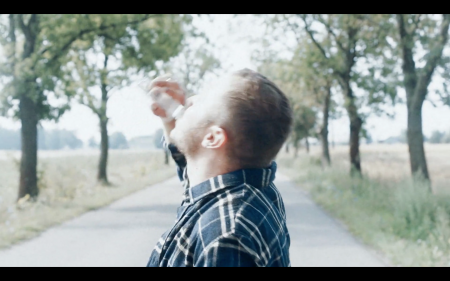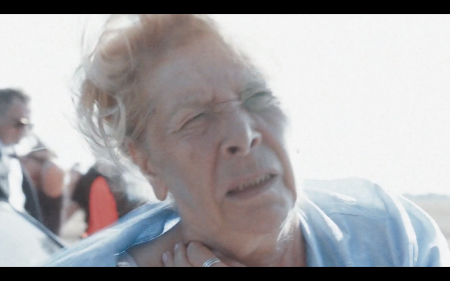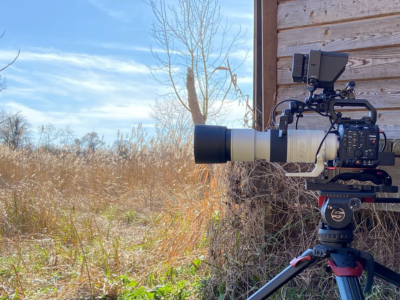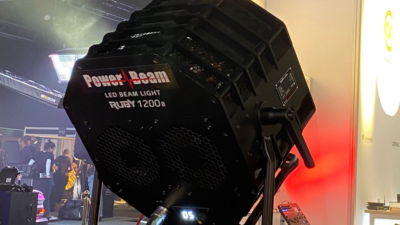
Le cinéma polonais actuel est un cinéma du réel, en témoigne la sélection à Camerimage dans la catégorie Polish films.
Observation d’un drame, étude d’une situation, les auteurs polonais qui comptent aujourd’hui (M. Szumowska, J. Szelc, J. Holoubek…) ne cherchent pas à nous faire découvrir un univers fantastique, un réel fantasmé. Bien au contraire, ils nous plongent dans des situations réelles concrètes, parfois des faits historiques (cf. 25 year of innocence, J. Holoubek)… Bartosz Kruhlik n’échappe pas à l’exercice pour ce premier film qu’il a réalisé à peine sorti de l’École Nationale de Cinéma polonaise de Lodz.

Couronné de succès au cours de cette année pour le moins curieuse en raison de la crise sanitaire, Supernova à tout remporté en Pologne ou presque (Grand prix du Festival de Gdynia, en lice pour représenter la Pologne aux Oscars…). On ne peut que souhaiter que cette nouvelle génération d’auteurs vienne un peu dépoussiérer la cinématographie polonaise qui s’appuie encore beaucoup (trop?) sur ses dinosaures (Wajda, Polanski, Holland…).
Jeunes réalisateurs, jeunes chef-opérateurs, petits budgets, productions plus indépendantes, le cinéma polonais se permet tout mais est-ce qu’il innove vraiment ? À première vue, dans Supernova, rien de réellement révolutionnaire dans la narration ou dans l’image. Un drame développé en 3 actes et respectant les unités de bases d’une narration classique (unité de temps, de lieu et d’action). Une caméra à l’épaule qui reprend les règles et les découvertes de la nouvelle vague. Un manque d’audace ? Peu probable, car dans son film Bartosz Kruhlik ose le propos sans aucune retenue. C’est à ce niveau que le choix d’une narration très classique, facilement maîtrisable et rapidement comprehensible par le spectateur, semble se justifier, contrastant durement avec l’acidité du portrait qu’il fait de son propre pays. Il nous dépeint une Pologne vieillissante, engoncée dans une mythologie catholique souvent absurde, au mieux impuissante face à un gouvernement vérolé et des représentants de l’ordre apathiques.
La critique est sévère, elle fait l’effet d’une bonne grosse gueule de bois à l’instar de celle de Michał, le mari alcoolique de la victime et le personnage qui ouvre véritablement le film. À l’image, la luminosité excessive, les blancs “éclatés” (probablement obtenus par l’utilisation d’un white promist devant l’objectif) nous replongent sans cesse dans cette sensation désagréable d’une photophobie passagère. La caméra à l’épaule vadrouille entre les situations, observe les visages, passe de l’un à l’autre. C’est une caméra qui scrute tout en étant incapable de rester fixe, l’oeil du spectateur, son “équilibre”, mis à l’épreuve comme pour nous écœurer.


Critique d’un état corrompu, d’une église trop présente et trop peu aidante, d’une police incapable de protéger et servir, le film de Bartosz Kruhlik est maitrisé du début à la fin.
L’épilogue vient appuyer ce constat sans espoir que rien ne change : un couple avec un jeune enfant arrive en voiture sur la zone du drame. Trop loin pour voir ce qu’il se passe vraiment, ils décident, après quelques instants d’immobilisme, de simplement faire demi-tour et de rentrer chez eux. De la même façon, semble nous dire l’auteur, toutes les révolutions finissent par s’épuiser et désintéresser les gens. De cette même manière, le jeune Bartosz nous provoquerait-il en proclamant que rien ne vaut les vieilles recettes et que rien ne sert d’essayer de révolutionner la forme ?
En nommant son histoire Supernova, Kruhlik engage l’analogie entre l’étoile dans son état si particulier et son film. La définition donnée à la fin vient nous rappeler avec justesse qu’une destruction n’est autre que le début d’une renaissance. Ici Kruhlik nous parle probablement de l’état de la Pologne plus que de son art. Néanmoins se peut-il que ce jeune auteur nous prédise aussi la mort de ce “vieux cinéma” régi par les règles de la dramaturgie classique ? Sera-t-il lui même capable de se reconstruire après l’avoir lui même “explosé” ? Dans tous les cas, sa maîtrise du savoir-faire cinématographique, démontrée avec ce premier film, donne envie de suivre son évolution.
ENGLISH VERSION
Polish cinema of today is a cinema of reality, as reflected by the selection at Camerimage in the Polish films category.
Wether it is observation of a drama, study of a situation, the Polish authors who count today (M. Szumowska, J. Szelc, J. Holoubek…) do not try to make us discover a fantastic universe, a fantasized reality. On the contrary, they immerse us in concrete real situations, sometimes historical facts (cf. 25 year of innocence, J. Holoubek)… Bartosz Kruhlik is no exception for this first film he shot just after finishing his studies at the Polish National Film School in Lodz.

Much acclaimed during this strange year due to the health crisis, Supernova has won everything in Poland or almost everything (Grand Prize at the Gdynia Festival, running to represent Poland at the Oscars …). We can only hope that this new generation of authors will come and shake the dust off the Polish cinematography which still relies a lot (too much ?) on its dinosaurs (Wajda, Polanski, Holland…).
Young directors, young cinematographers, low budgets, more independent productions, Polish cinema indulges in everything, but does it really innovate ? At first glance, in Supernova, there is nothing really revolutionary in the narrative or the image. A drama developed in 3 acts and respecting the basic units of a classic narrative (unit of time, place and action). Hand-held camera that follows the rules and discoveries of the Nouvelle Vague. A lack of audacity ? Unlikely, because in his film Bartosz Kruhlik is daring in the subject without any self-restraint. It is at this level that the choice of a very classical narration, easily mastered and quickly intelligible by the viewer, seems justified, contrasting harshly with the acidity of the portrait he makes of his own country. He portrays an aging Poland, entangled in an often absurd Catholic mythology, at best helpless in the face of a corrupt government and apathetic representatives of the order.
The critique is harsh, it leaves you with the impression of a hangover , like the one of Michał, the alcoholic husband of the victim and the character who really opens the film. In the image, the excessive intensity of light, the radiant whites (probably obtained by the use of a white promist in front of the lens) constantly bring us back to this unpleasant sensation of a temporary photophobia. The handheld camera moves between situations, observes faces, passes from one to the other. It is a camera that is scrutinizing while being unable to remain fixed, the spectator’s eye, his « balance », is challenged as if to dizzy us.


Criticism of a corrupt state, of a pervasive church that is not sufficiently helpful, of a police force incapable of protecting and serving, Bartosz Kruhlik’s film is mastered from beginning to end.
The epilogue supports this hopeless conclusion that nothing will change: a couple with a young child drives up to the site of the drama. Too far away to see what is really going on, they decide, after a few moments of immobility, to simply turn around and go home. In the same way, the author seems to tell us, all revolutions end up exhausted and disinterested. In the same way, is young Bartosz provoking us by proclaiming that nothing is better than old recipes and that there is no point in trying to revolutionize form ?
By naming his story Supernova, Kruhlik engages the analogy between the star in its particular state and his film. The definition given at the end aptly reminds us that a destruction is nothing other than the premise of a rebirth. Here Kruhlik is probably referring to the state of Poland more than to his art. Nevertheless, could it be that this young author is also predicting the death of this « old cinema » based on the rules of classical dramaturgy? In any case, his mastery of cinematographic know-how, demonstrated with this first film, makes one want to follow his evolution.
-
Partager l'article


